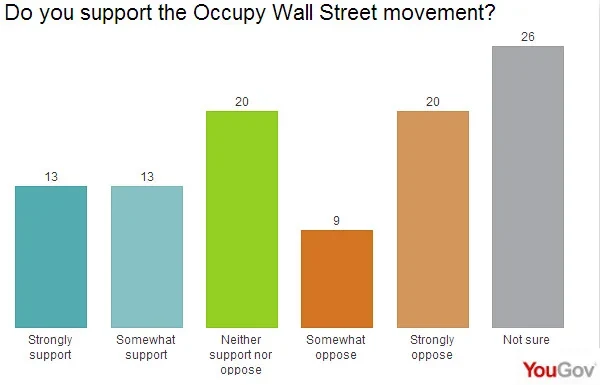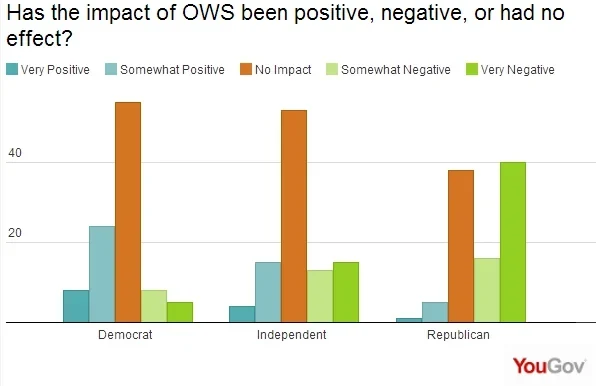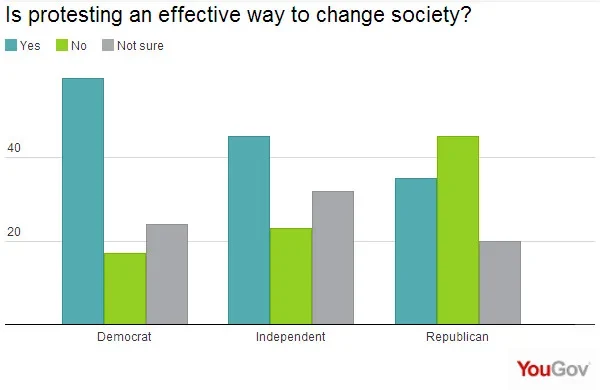Approval for Occupy Wall Street has declined substantially, although many still believe protests are a useful tool for social change.
Yesterday was the two year anniversary of the Occupy Wall Street movement, a New York City protest that had satellite movements across the country and the globe. On the morning of Sepember, 17th, 2013, New York mayoral candidate Bill de Blasio spoke at Zuccotti Park in a reprise of the goals that OWS hoped to accomplish. The movement sought to bring attention to economic and social inequality, and bring to light the perceived corrupt relationship between corporations and the government. However good it's intentions, favorablity has dropped substantially with the American Public.
The latest YouGov research shows that since 2011, support for the movement has declined considerably, going from a 43% approval rating in October of 2011 to 26% now. Current support for the movement is quite low, with many (26%) unsure of whether or not they support the movement, with a large portion of the remainder either not caring (20%), or opposing it (29%).

In a reflection of the past two years, polls show that half of Americans (50%) think the protests have been completely ineffective, while many republicans (40%) say the protests have had a very negative social impact.

The same laissez-faire attitude does not apply to protesting in general, however. When asked whether or not Americans still have faith in ‘the Protest’ as a valid and effective mode of changing society, the majority of Americans did. The majority of Democrats still have faith in protesting as a vector of change, while Independents and Republicans had slightly less and much less conviction respectively.

Lastly, when asked whether protests work better to garner support or opposition for a specific cause, Americans were split pretty evenly. The majority admits that they are unsure towards what end protests are effective. Effective or not, a YouGov poll conducted over the same time shows that 53% of people believe wealth should be more evenly distributed, compared to 27% who think it's fair. This information gives the impression that Americans are sympathetic to the issues that motivated the Occupy Wall Street movement, but not necessarily the movement itself.
Full results can be found here.
Image: Getty.








